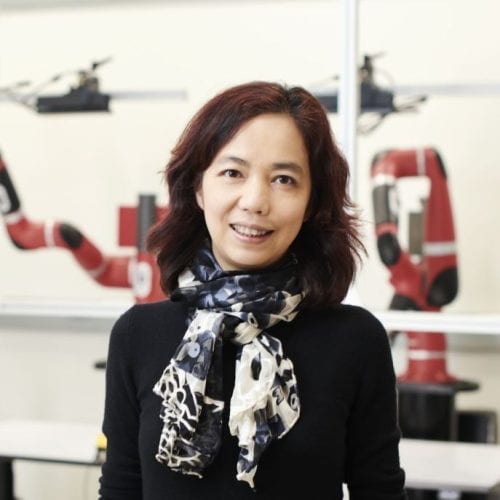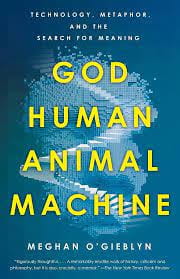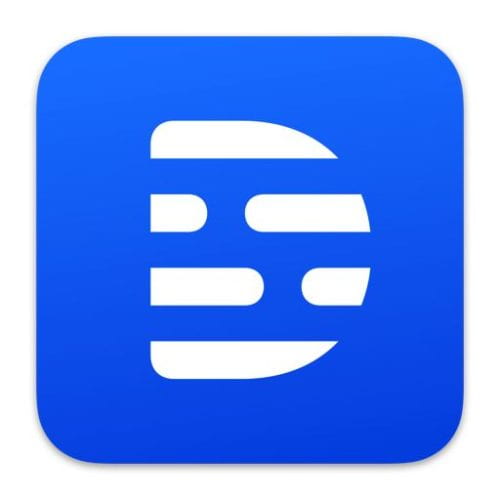Upcoming Events
AILA’s Spring Learning & Discussion Series
Emotions on Demand: How AI Music Scoring Interfaces Combine Game Engines, Music Data, and Machine Listening | A Conversation with Ravi Krishnaswami & Chris Grobe
TOMORROW! Tues, March 26th @ 4:30 pm | Location: CHI ThinkTank

Join AILA and Ravi Krishnaswami, the Joseph E. and Grace W. Valentine Visiting Assistant Professor of Music at Amherst College, as he shares his recent research on the complex world of AI music-scoring interfaces. Krishnaswami will present his research on the intersection of technology, creativity, and emotional expression, and offer insights into the future of music composition for interactive media. Krishnaswami will also be joined in conversation by Chris Grobe, Associate Professor of English and Director of the Center for Humanistic Inquiry. The event is open to students, staff, faculty, and alumni throughout the Five Colleges. Email aila@amherst.edu for more details!
AI for the People: Unleashing the Power of
Community-Engaged AI | Virtual Event
A Conversation with Aron Culotta (Tulane University’s Center for Community-Engaged AI), Dan Cannity (UMass- IDEAS), and Kirsten Helmer (UMass- CTL) | April 4th @ 4p ET
Since April 2023, a group of faculty at Tulane University in New Orleans, LA have developed some innovative approaches to ensure the latest advancements in AI are working for the community, rather than against it. On April 4th, AILA welcomes Aron Culotta, Director of Tulane’s Center for Community-Engaged Artificial Intelligence (and UMass-Amherst alum) to share his on-going work with several community organizations in New Orleans using the tools and resources they have to work towards justice in the city.
Dr. Culotta will be joined by Kirsten Helmer, of UMass’s Center for Teaching and Learning, and Dan Cannity of Instructional Design, Engagement, and Support (IDEAS) about how faculty in Higher Education can leverage AI to enhance community-engaged learning and develop students’ critical thinking, ethical reasoning, creativity, and innovative problem-solving skills. This event is open to anyone interested in learning more about how AI tools can be applied to community challenges.

Meghan O’Gieblyn joins AILA Founder, Lee Spector in Conversation about God, Human, Animal, Machine
April 30th @ 6p in Cole Assembly Room, Amherst College, MA

AILA is excited to announce that essayist, author, and critical thinker Meghan O’Gieblyn is coming to Amherst this April! In her three-day visit to Amherst Meghan O’Gieblyn will have the opportunity to meet with a variety faculty, staff, and students. The visit will culminate in a public conversation between AILA Founder, Lee Spector and O’Gieblyn as they discuss some of the most compelling ideas put forth in her latest book God, Human, Animal, Machine. Check out our book review below and stay tuned for more information!
Celebrating Women’s History Month
In observance of Women’s History Month, AILA would like to highlight some of the most influential women pushing the boundaries of Artificial Intelligence today!

Fei-Fei Li
Fei-Fei Li, a luminary in the AI field, made her mark early with the ImageNet project in 2007 while at Princeton. The project revolutionized AI by proving the importance of vast datasets. Her work laid the foundation for the deep learning era, catalyzed by ImageNet’s use in the 2012 competition. Li now serves as a tenured Stanford professor and former Google Cloud Chief Scientist of AI/ML. Li leads Stanford’s AI lab, co-founded AI4ALL for inclusivity in AI and initiated the Human-Centered AI Institute. Advocating for diversity, she emphasizes that technology reflects its creators’ values, underscoring the need for inclusive representation in AI’s development.
Featured AI News
It’s hard to keep up with all the AI-related News these days, but here are a couple stories that have us thinking and discussing. Let us know what AI News stories have you riveted!
United Nations General Assembly develops AI resolution
The UN General Assembly has adopted a groundbreaking resolution aimed at promoting the development and use of “safe, secure, and trustworthy” artificial intelligence (AI) systems. This initiative, led by the US and supported by over 120 other Member States, focuses on ensuring AI advancements contribute positively to sustainable development and human rights. It marks a significant step in regulating the rapidly evolving field of AI, emphasizing the importance of aligning AI tech with international human rights law and addressing the digital divide. Read more here!


AI and the Unhoused: San Jose takes aim
San Jose is pioneering an AI experiment to identify homelessness by detecting tents and cars serving as homes through cameras mounted on municipal vehicles. The city claims that initiative aims to improve city services but it has raised concerns about privacy and the potential for misuse against the unhoused. The AI technology focuses on object detection with privacy safeguards, such as blurring
faces and license plates. The project reflects broader issues of housing affordability and the ethical implications of surveillance technology. Read more here and email us your thoughts on the application of AI to community surveillance!
AILA Recommended Reads
Engaging an interdisciplinary community of participants in discussions and activities about AI requires we stay in the know. Check out some of the books our AILA Team is reading and discussing together.
God, Human, Animal, Machine
Meghan O’Gieblyn | Penguin Random House, 2022
If you are as excited for Meghan O’Gieblyn’s visit to Amherst College was we are then this should be at the top of your must-read list! This text is a truly humanist work offering a thought-provoking exploration of humanity’s identity in the age of artificial intelligence. O’Gieblyn discusses how our understanding of the human mind has been influenced and reshaped by advances in technology, particularly AI over time.
The book brings into focus how AI and information technology have absorbed and recreated many of the existential queries addressed by theologians. In sharing personal vignettes from her own intellectual journey away organized religion, she presents a fascinating and interdisciplinary take on our cultural and technological landscape. We truly can’t wait to hear her and Lee Spector in conversation on 4/30!

Featured AI Tool
Our AI Mentorship and Tools team is always exploring new applications of AI. Here we feature some of our favorites. Please explore these tools freely with your personal account, but be mindful of bias, accuracy, content ownership, and use of personally identifiable information with these tools. Institutions are evaluating the use and configuration of AI-based tools, so please check with your IT department before using these tools with college or institutional systems or data.
Descript is an AI-powered tool designed for audio and video editing. It’s tailored to simplify content creation, allowing users to edit media by tweaking the transcribed text.
Below, are some of our favorite features:
- Video Editing: Simplifies the video editing process, making it as straightforward as editing a document.
- Podcasting: Offers multitrack audio editing capabilities that are intuitive and user-friendly.
- Transcription: Provides industry-leading transcription services with high accuracy and speed, along with powerful correction tools.
- AI Voices: Allows users to create realistic voice clones or choose from a variety of stock AI voices.
- Remote Recording: Enables crystal-clear podcast and video recording with others from anywhere in the world.
- Screen Recording: Users can capture, edit, and share screen/webcam recordings instantly.
- Filler Word Removal: With a single click, users can remove filler words like “um,” “uh,” and “you know” from their audio.
- Multi-user Collaboration: Facilitates collaboration among team members on audio and video projects.
- Publishing: Allows for easy publishing and sharing of projects for viewing and listening.
- Social Video: Users can create engaging social videos for sharing on social media platforms.
We also found that Descript prioritizes user security, privacy, and data confidentiality, ensuring that these aspects are treated as top priorities. The tool aligns with best practices for AI and data privacy, including transparency, ethical testing, and minimizing the use of personal data in AI algorithms.
Security & Privacy Rating: 🔐🔐🔐🔐+


The Artificial Intelligence in the Liberal Arts initiative at Amherst College aims to engage a broad, interdisciplinary community of participants in discussions and activities related to artificial intelligence, exploring and facilitating multi-way interactions between work in artificial intelligence and work across the liberal arts. Our newsletter contains the latest AI-related events, tools, scholarship, and news in AI.